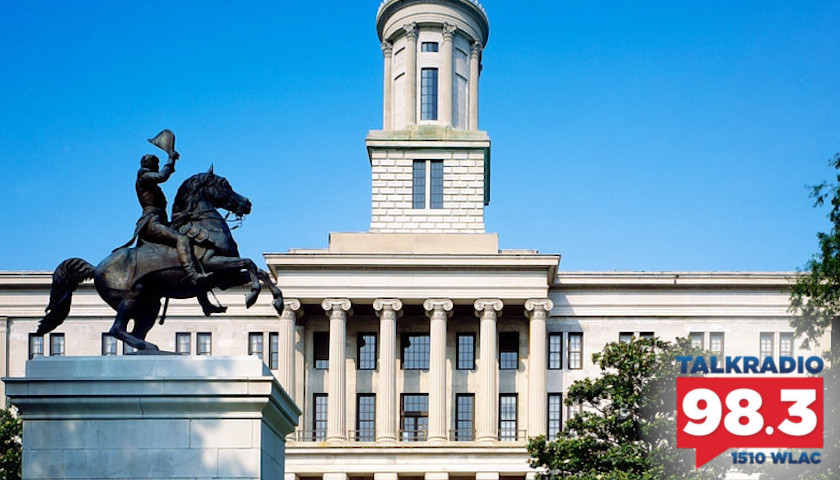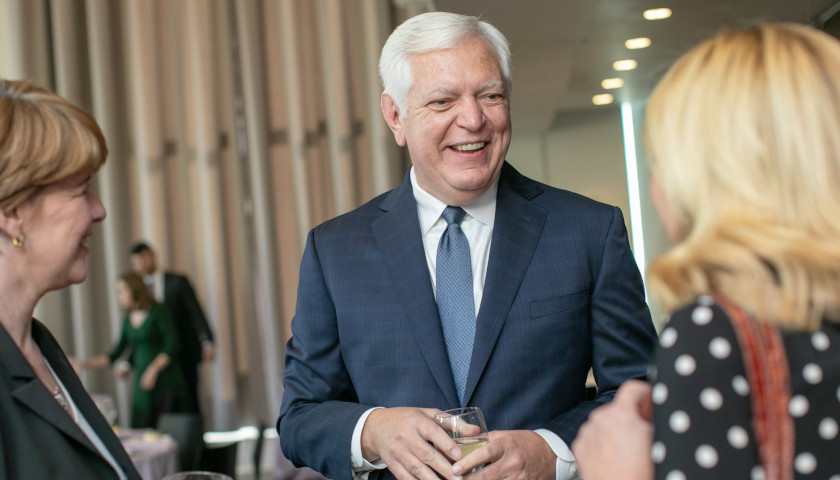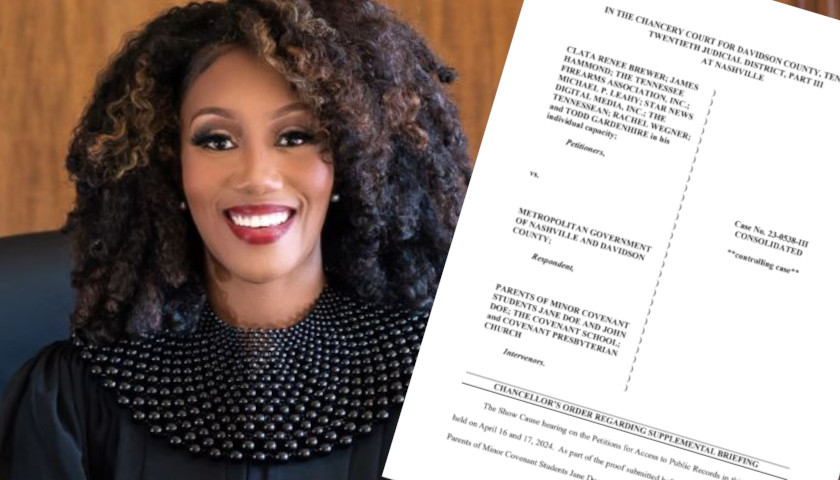Live from Music Row Thursday morning on The Tennessee Star Report with Michael Patrick Leahy – broadcast on Nashville’s Talk Radio 98.3 and 1510 WLAC weekdays from 5:00 a.m. to 8:00 a.m. – guest host Aaron Gulbransen welcomed all-star panelist Clint Brewer in-studio to dissect the Robby Starbuck lawsuit and explain how the Open Meetings Act could affect all political parties in the state of Tennessee.
Gulbransen: We’re here with all-star panelist Clint Brewer. How are you doing today?
Brewer: I’m good, man. I’m good. I’m sorry I distracted you, man.
Gulbransen: Clint is such an engaging speaker that he lulled me into a sense of false security.
Brewer: There was no dead air, though. There was no dead air.
Gulbransen: There was not. So that’s the mark of a successful show, right? I mean, forget the content and everything else. Nobody curses on the air and you don’t have a moment of real silence on the air.
Brewer: I think that’s the mark of success on a college radio station.
Gulbransen: (Laughter) There you go. Not the iHeartMedia station.
Brewer: Absolutely not.
Gulbransen: Anyway, what we were engrossed in is the interesting topic of what, so much is made of it and I’ll touch on it for a second.
Obviously, to Robby Starbuck and the people all around the country on Twitter that support him that are not living in Tennessee, and some in Tennessee, they’re concerned about whether or not he’s going to be on the ballot.
And I think the other campaigns are concerned about whether or not he’ll be on the ballot because they want to know who they’re really running against.
But there’s no public polling out there, or private polling for that matter, saying if this guy were in the race, there would be a massive lead. It just doesn’t exist.
So what we’re really talking about is sort of like an interesting semantical thing, which is going on as almost like game theory on a campaign when we talk about that side of it.
The important, vitally important side of it that is much different than just one campaign, or talking about one campaign, is basically what Judge Perkins’ decision does putting political parties in Tennessee subject to the Tennessee Open Meetings Act, and what does that mean?
So you were explaining to me very deftly, off the air, what the Tennessee Open Meetings Act is, and how it could affect, not just one, but all political parties in Tennessee if this decision were to stand.
Brewer: I mean, this is plumbing some pretty deep issues. Look, the Tennessee Open Records Act and the laws affecting open records and open meetings are not absolute.
People seem to think they are because often they want them to be, but they are not. So there are exceptions to the open records laws and open meetings laws that largely apply to the state legislature.
Both parties are allowed to caucus, and they’re not required to bring in reporters, not required to provide public notice, they’re not required to provide the minutes.
There are exceptions to records in the legislature that are and are not open to the public. There are exceptions in state government where, due to the deliberative process and other things, certain meetings or certain records beyond the legislative branch are not open to the public.
So these arguments are supported by the state court, and the executive committee system, they are elected officials, so they do have to go on the ballot.
I do believe they have to provide some public notice for their full meetings, but I don’t believe that they are required to for any of these subcommittees that meet.
So it would affect both parties. Let’s be clear. And it also takes away some of the autonomy given to both parties to determine what their ballots will be in Tennessee.
I think there’s the Starbuck thing, and before that, the Morgan Ortagus sort of boom lit here. I think it’s a microcosm of what’s happening in this state and in the other Southern states, where you’ve got people fleeing other parts of the country because they want to be where there’s more freedom, fewer taxes, and smaller government.
Gulbransen: Right.
Brewer: And that’s great. But they sort of need to abide by the laws and rules and norms that are here already.
Gulbransen: So what you’re basically saying is it is unwise for somebody to move to a different state and come in and go, well, I own the place. Now you’re going to listen to me because I know better than you do, right?
Brewer: And I think that’s happening not just, I mean, there are elements of that in a lot of our lives in Tennessee. I know there’s a certain aspect of that that happens in the business community.
I think that large companies come in and they sort of want the rules to sort of bend to them in some situations, whether that’s social, or something as simple as zoning codes.
I think that you’re seeing that across Tennessee. I think that a lot of the folks coming in are the reason that there’s some resentment, because housing prices are going so high.
This is a cultural thing that kind of cuts across the board right now, particularly in the Nashville area. And so I think the Starbuck lawsuit, it has real legal ramifications for how both parties are allowed to run themselves under state law.
But I think there’s also its sort of a microcosm of some of the cultural things we’re experiencing right now with so many newcomers moving here.
Gulbransen: And it makes sense. The issues that Judge Perkins in the chancery court, and this is something that … so what the Supreme Court did when they reached down, they grabbed the appeal.
They took the Republican Party’s appeal and they also took the state’s motion to vacate the chancery court decision. And kind of – this is not really a legal term, obviously, but it’s like they put them all together essentially, and they’re considering it all in one thing.
Brewer: They consolidated.
Gulbransen: Yeah, they consolidated it. There you go. And in order to get there, once the Republican Party made a motion on the 7th to ask the Supreme Court, the state Supreme Court to do that, Starbuck’s team was allowed to respond.
And they argued, no, no, no, please don’t hear this. Basically, this is not warranted for this. This is not a state Supreme Court issue, blah, blah, blah. And clearly, the court disagreed.
So they’ve taken it up, which may signal that they’re going to rule against Starbuck. It may signal that, I’m not making a prediction.
Although clearly they have an interest and a vested interest in the case, and they understand. Now the other interesting thing that happened yesterday was it came out that Ortagus, who had also been disqualified, had filed with Judge Perkins and chancery court to be enjoined to Starbuck’s case.
Listen to the interview:
– – –
Tune in weekdays from 5:00 – 8:00 a.m. to The Tennessee Star Report with Michael Patrick Leahy on Talk Radio 98.3 FM WLAC 1510. Listen online at iHeart Radio.








